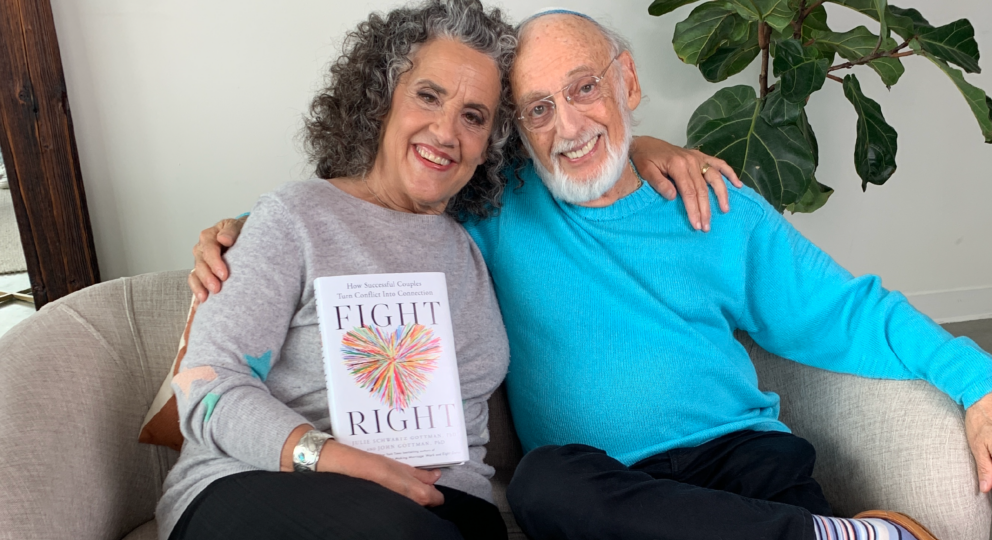In theory, most people agree that it’s a good idea for both partners in a relationship to have influence in decision-making. You imagine you’re good at working as a team, compromising, and going back and forth—if only your partner would be more flexible.
Research conducted by Drs. Gottman and Jacobson showed that men who accept influence from their female partners tend to have happier and more satisfying relationships. Paradoxically, what the research also showed was that the more influence a partner was willing to accept, the more influential that partner was in the relationship overall.
In reality, accepting influence is an equal opportunity concept. All intimate relationships work better when both partners have and accept influence. In fact, this is one of the hallmarks of a successful relationship, one in which there is a pattern of respectful influence going back and forth and both partners feel that things are fair.
What does it mean to accept influence?
In discussing this idea in couples therapy, there’s sometimes a belief that you have to comply or just go along with your partner to truly accept influence. “If I just say ‘Yes, dear,’ everything’s okay,” a client said to me recently. This is a mistaken belief, as accepting influence is simply being open to the ideas and opinions of your partner, not agreeing or complying or giving in. By accepting influence, you acknowledge that your partner has a valid point of view. You welcome it, are willing to be influenced, and maybe have your perspective changed by it. Accepting influence says, “You are important, and your opinions matter to me even if (and bonus points for this, especially if) I don’t agree with you.”
Problems with resisting influence show up in many ways. Some are clearly about one partner rejecting the other or needing to always have their own way. Others are more subtle, such as one partner appearing to seek input on something when behind the scenes they have made their decision already. Some people reflexively say or indicate “no” as a way to maintain control over a conversation or decision even if they actually agree with their partner. There can be understandable reasons for any of these stances, but it’s important to note that the only message that’s getting communicated to the partner is “No.”
On the other end of the spectrum are people raised in families or by cultural or societal norms to believe that they do not deserve to have influence, so why bother speaking up? They think, ‘It’s not going to get me anywhere.’ Both ends of this spectrum can create power struggling and resentment.
Do you and your partner accept each other’s influence? Take our Love Quiz.
How to accept influence
So, how can you avoid the tugs-of-war that happen around this issue of influence?
First, check yourself
Self-awareness is key. You’re likely not trying to shut your partner down but are inadvertently doing so. That can sound like, “I’m just expressing my opinion” when in reality they’re thinking ‘… and this is the only opinion that matters.’ Ask yourself, are you really staying open to the other perspective?
Listen with curiosity to the other point of view
Check to see if you are understanding correctly. It is so much harder to do this when you disagree, but the solution you can ultimately come to is going to feel a lot better if both of you feel understood and respected.
Remember the research
The more influence you accept, the more influential you will be.
Look for ways to say “yes.”
There is a benefit to you in yielding a bit, not being defensive, and being open to seeing that your partner has a valid perspective—even if you don’t share it. Think of it as looking for ways to say “yes,” even if that is a simple acknowledgment, such as, “I see your point.” For many, this can be a challenge, but you have to ask yourself: Do you want to be right or do you want to stay together?
Find out how well you accept influence
How can you know you’re in a happy relationship that’s both good for your health and everyone around you? Can such a thing be measured? It can! Take this free couples quiz and find out how well you know your partner and whether you are developing a negative perspective.
For an in-depth analysis of your relationship health check out the Gottman Relationship Adviser, a virtual relationship evaluation and improvement tool for couples.
The Adviser provides you with a full snapshot of your relationship satisfaction, outlines your strengths and weaknesses, and supplies tailored recommendations for improvement. Start building a happier relationship today!










